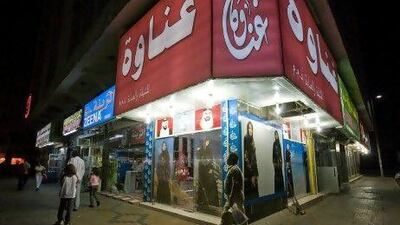Government officials are working on a proposed bankruptcy law designed to lower costs for businesses seeking to raise capital for start-ups or for expanding in the UAE, legal experts say.
Observers following developments generally agree the country's economy would benefit from more entrepreneurial risk-taking and a boost to the number of new businesses.
But some also say it would help to lower the cost of funds needed to launch or grow a company.
"International markets do not perceive UAE law as providing a viable reorganisation procedure and, as a result, companies in the UAE pay a premium when raising capital," said Adam Goldberg, an associate with Latham & Watkins, a law firm in Dubai.
"Reforming the insolvency law to provide a clear, predicable and transparent means for a company to reorganise would benefit the national economy and all UAE companies by reducing the costs of capital for UAE companies over the medium to long term."
A bankruptcy law already exists. But it has not been tested by any company, which means there is much uncertainty in legal circles about how it could be applied in reality, said Jody Waugh, a partner in the banking and finance division of the law firm Al Tamimi & Company.
"Current requirements under the bankruptcy law can make it difficult for companies to propose or obtain a court-supervised arrangement with creditors," Mr Waugh said.
An overhaul of the existing law would affect businesses of all sizes, experts say. Yet some note smaller start-ups could be the biggest benefactors.
In the tourism sector, many companies tend to be well-known brands that are well established.
But a greater number of smaller hotels or tour operators might start entering the market if the new law helps to push capital costs lower.
"Best practice bankruptcy provisions can play an important role in stimulating investment and entrepreneurial activity across all levels of the tourism industry," said Lawrence Franklin, the strategy and policy director for the Abu Dhabi Tourism Authority, "but particularly among small to medium enterprises, which are the backbone of any tourism sector and where, if international experience is taken into account, much turnover occurs."
At present, banks tend to ask for personal guarantees from small businesses, but a new law would pressure them to evaluate a company based on its creditworthiness, said Abdul Baset Al Janahi, the chief executive of Dubai SME, an agency under the emirate's Department of Economic Development.
This would eventually improve a bank's lending procedure, he added.
Others, however, note capital costs often have a premium in the UAE compared with other countries because of a high concentration of family-owned businesses.
"That in itself imposes a personal relationship beyond the corporate structure, said Bachir Nawar, the legal director of the Abu Dhabi office at Berwin Leighton Paisner, an international law firm.
"That's why banks will continue to ask for guarantees, separate from the insolvency regime."

